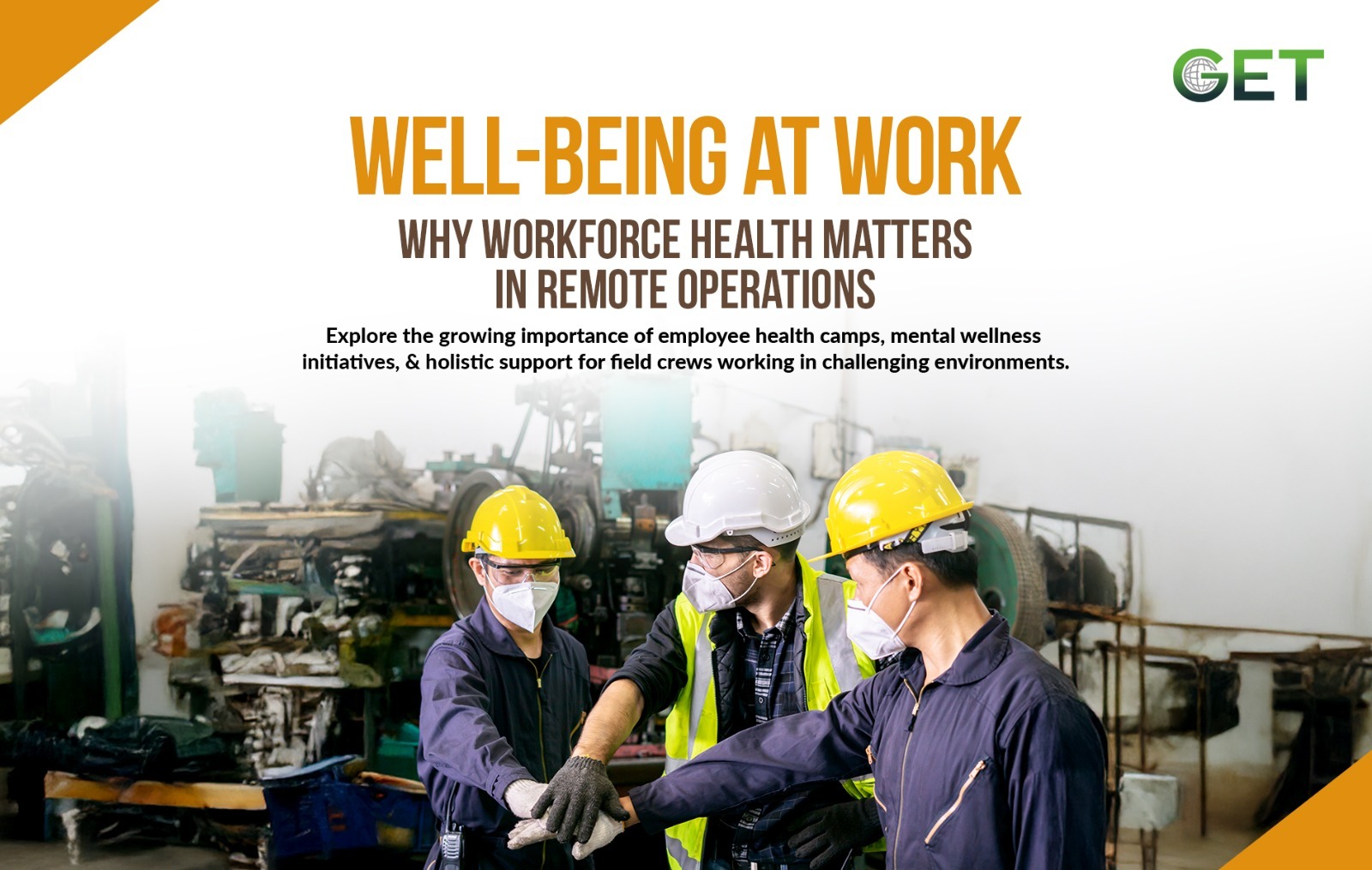
The Oil & Gas industry consistently handles remote work. From offshore drilling rigs to desert-based extraction units, the sector often functions in some of the world’s most isolated and physically demanding locations.
However, with more people working remotely due to digital transformations, we’re seeing a new kind of remote workplace: people become anxious, overwhelmed and less connected. Because of this shift toward remote work, we must ask: how do we look after the mental and physical well-being of our employees?
Precision, endurance, and resilience are what have made Oil & Gas operations successful. Even though machines are playing a greater role, valuable experience and knowledge from people continue to play a crucial part in oil and gas operations as well. However, the busy work, working in dangerous areas and extended absences from family adversely affect mental and physical well-being.
In the last few years, the health of employees, previously known as a soft metric, has been seen as a key priority. Firms that value health and wellness are more efficient and have fewer accidents, greater employee loyalty and are better known in their industry.
Explore career opportunities at organizations that prioritize well-being.
In the Oil & Gas sector, ‘working remotely’ is about both home-based jobs and staff on-site in remote locations, engineers working across different time zones and monitoring done from central control centers. Because of this, the problems of keeping workers healthy are more pronounced. Below are few challenges faced by employees working remotely in Oil & Gas sector.
Workplace health can only be promoted by considering the whole person, not just their fitness. Now let’s look at the major components of information security design.
Making sure employees are well taken care of in Oil & Gas operations done remotely is now a necessary part of doing business. The most important thing is that healthy workers have better judgment. Therefore, in risky situations, fewer accidents occur, the work is interrupted less and expenses decrease for compliance and insurance. If workers are not tired, the rate of errors usually decreases which helps companies meet safety benchmarks and prevent plant shutdowns.
Well-being efforts at work help improve employee motivation and morale. Having a good level of support encourages employees to thrive in their positions, think of new ideas, and team up well. It both helps employees work better each day and prepare the team to cope with challenging work situations.
Furthermore, taking care of workers is in line with overall Environmental, Social, and Governance (ESG) objectives. People in companies, especially those working in dangerous fields, are coming under careful watch by investors, partners and regulatory bodies. Showing a carefully designed wellness strategy helps your reputation, supports your sustainability goals, and ensures your brand is seen as a responsible and modern front-runner.
Managing operations remotely is inherent within Oil & Gas. The mindset toward employee well-being needs to change. It includes not only lowering accident rates or providing gyms, but also ensuring that people are valued everywhere within the company.
If companies adopt well-being as a key element, instead of just offering it as a benefit, they can attract and keep a committed, reliable, and hardworking workforce. Even where things seem far from civilization, progress is driven by people.
Read Also- Offshore Oil Rigs in 2025: Innovation, Challenges, and the Road Ahead

By Get global | February 27, 2026
The oil and gas industry is complex and high-risk, making it essential for operators to select oilfield service partners based on more than just price or equipment availability. In the upstream sector—especially in the Middle East—Health, Safety, and Environmental (HSE) performance is now a key factor in decision‑making. Strong HSE […]

By Get global | February 24, 2026
Choosing an oilfield service provider rarely feels like a risky decision at the start. On paper, most providers look capable. Certifications are in place. Equipment lists are impressive. Commercial terms appear competitive. The problems usually show up later. A few weeks into operations. After the first unplanned shutdown. When coordination […]

By Get global | February 19, 2026
In today’s constantly evolving energy landscape, selecting the right Upstream Oilfield Services Provider is not only essential but also a strategic decision that directly influences the performance, safety and well being of the workforce. The upstream oil and gas sector operates in one of the most hazardous and risk – […]

By Get global | February 12, 2026
In today’s rapidly evolving energy landscape, the upstream segment is not only crucial in the oil and gas industry but also the basis of finding and exploring hydrocarbons. As projects move into deeper and much complex territories, upstream companies are involved in all the phases of the oil and gas […]

By Get global | February 6, 2026